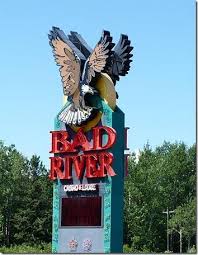
Welcome to our comprehensive guide on crushing the competition at Graton Casino Poker Tournaments. If you’re looking to elevate your poker game to new heights and emerge victorious in one of the most competitive arenas, you’ve come to the right place. In this article, we’ll delve into proven strategies, expert tips, and tactical maneuvers that will give you the edge you need to triumph over your opponents.
Mastering the Basics
Understanding the Environment
Before diving into specific strategies, it’s crucial to familiarize yourself with the unique dynamics of Graton Casino Poker Tournaments. Take note of the varying skill levels of participants, the structure of the tournaments, and the specific rules and regulations enforced by the casino.
Cultivating a Winning Mindset
Success in poker tournaments, particularly at Graton Casino, is as much about mental fortitude as it is about skill. Develop a winning mindset characterized by confidence, resilience, and adaptability. Embrace the challenges presented by each hand and view setbacks as opportunities for growth.
Strategic Approaches
Tight-Aggressive Play
One of the most effective strategies employed by seasoned professionals is tight-aggressive play. This approach involves selectively choosing starting hands while adopting an aggressive betting style when entering pots. By exerting pressure on your opponents and capitalizing on favorable situations, you can accumulate chips steadily throughout the tournament.
Positional Awareness
Understanding the importance of position in poker is essential for success. Exploit your position at the table by leveraging it to gain valuable information about your opponents’ actions. Positional awareness allows you to make more informed decisions and maximize your profitability in favorable situations.
Reading Opponents
In addition to analyzing your own hand strength, proficient poker players excel at reading their opponents. Pay close attention to betting patterns, body language, and verbal cues that may provide insights into the strength or weakness of their holdings. Utilize this information to make well-informed decisions and gain an edge over your adversaries.
Tournament-Specific Strategies
Managing Your Stack
As the tournament progresses, the dynamics of play will evolve, requiring you to adapt your strategy accordingly. Manage your stack effectively by making strategic adjustments based on your chip count relative to the blinds and antes. Avoid becoming too passive or overly aggressive, as balance is key to sustained success.
Capitalizing on Bubble Play
During the latter stages of a tournament, approaching the bubble can be a highly lucrative opportunity for skilled players. Take advantage of the increased pressure on short-stacked opponents by applying aggressive pressure and accumulating chips. However, exercise caution to avoid unnecessary risks that could jeopardize your chances of cashing in.
Final Table Dynamics
Reaching the final table is a significant achievement in any poker tournament, but navigating the unique dynamics of this stage requires finesse and strategic acumen. Assess the playing styles of your remaining opponents and adjust your strategy accordingly. Maintain a calculated aggression while remaining mindful of the increased stakes and potential pay jumps.
Leveraging Technology
In the digital age, technology has become an invaluable asset for poker players seeking an edge. Utilize poker tracking software and HUDs (Heads-Up Displays) to gather data on your opponents’ tendencies and analyze your own performance. By harnessing the power of technology, you can gain actionable insights that enhance your decision-making process and improve your overall results.
Continual Learning and Improvement
The journey to poker mastery is an ongoing process that requires dedication and a commitment to continuous learning. Stay abreast of latest developments in poker theory, study strategy resources, and seek feedback from knowledgeable mentors. Embrace a growth mindset and view every hand as an opportunity to refine your skills and expand your understanding of the game.
Bankroll Management
Effective bankroll management is essential for long-term success in poker tournaments. Establish clear guidelines for the allocation of your funds, ensuring that you have an adequate cushion to withstand inevitable variance. Avoid the temptation to play beyond your means and adhere to prudent bankroll management principles to safeguard your financial stability.
Mental and Physical Well-being
Maintaining optimal mental and physical health is paramount for peak performance at the poker table. Prioritize adequate sleep, healthy nutrition, and regular exercise to enhance cognitive function and stamina. Incorporate relaxation techniques such as meditation and mindfulness to mitigate stress and maintain focus during extended tournament sessions.
Networking and Community Engagement
Engage with the poker community both online and offline to expand your network and glean insights from fellow players. Participate in forums, discussion groups, and live poker events to exchange ideas, share experiences, and forge valuable connections. Collaborating with like-minded individuals can provide support and inspiration on your poker journey.
Setting Realistic Goals
Establishing clear, achievable goals is essential for staying motivated and measuring progress in your poker endeavors. Whether it’s improving your win rate, reaching a specific tournament milestone, or earning a coveted title, set goals that are realistic, measurable, and time-bound. Celebrate your successes along the way and use setbacks as opportunities for reflection and growth.
Emotional Control and Tilt Management
Poker is a game of skill, but emotions can often influence decision-making and lead to tilt—a state of emotional frustration that impairs judgment. Develop emotional resilience by cultivating self-awareness and implementing effective tilt control strategies. Take breaks when necessary, practice deep breathing exercises, and maintain a positive mindset to mitigate tilt and maintain peak performance.
Ethics and Sportsmanship
Lastly, uphold the principles of ethics and sportsmanship in all your interactions at the poker table. Treat your opponents with respect and courtesy, refrain from unsportsmanlike behavior, and adhere to the rules and regulations set forth by the casino. Remember that poker is not only a game of skill but also a test of integrity and character.
Conclusion
In conclusion, mastering Graton Casino Poker Tournaments requires a combination of skill, strategy, and mental resilience. By implementing the strategies outlined in this guide and continually honing your craft through practice and study, you can position yourself for success on the felts of one of California’s premier poker destinations.






